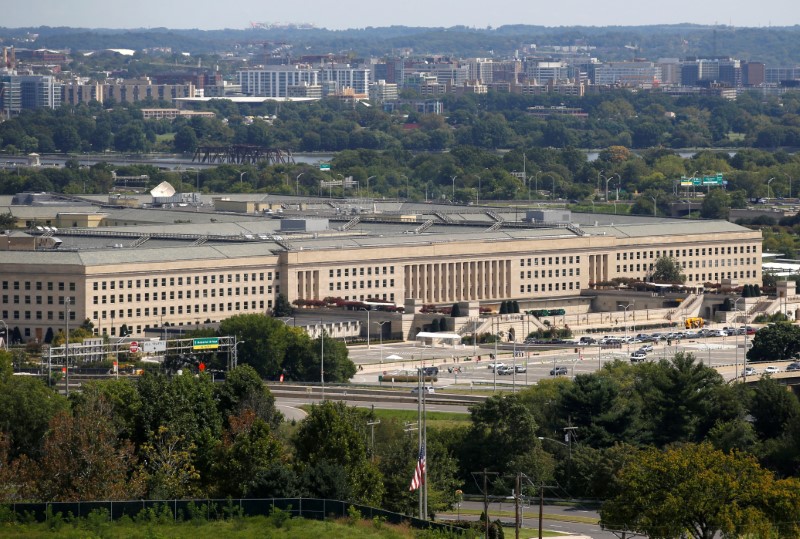By Phil Stewart
WASHINGTON (Reuters) - The Pentagon will indefinitely delay a ban on the use of older types of cluster bombs due to take effect on Jan. 1, 2019, officials said, arguing that safety improvements in munitions technology failed to advance enough to replace older stockpiles.
Cluster bombs, dropped by air or fired by artillery, scatter bomblets across a wide area, but sometimes fail to explode and are difficult to locate and remove. That can lead to civilian deaths and injuries long after conflicts end.
The U.S. military had hoped to transition to cluster munitions that explode at least 99 percent of time, greatly reducing the risks.
But with just over one year to go before the ban's slated implementation, a Pentagon spokesman told Reuters that safety technology had not progressed enough to replace existing stockpiles with safer weaponry.
Reuters has seen a copy of the memo changing U.S. policy and confirmed the changes with Pentagon officials.
"Although the Department seeks to field a new generation of more highly reliable munitions, we cannot risk mission failure or accept the potential of increased military and civilian casualties by forfeiting the best available capabilities," the Pentagon memo says.
The memo, which was expected to be signed by Deputy Defense Secretary Patrick Shanahan on Thursday, called cluster munitions "legitimate weapons with clear military utility."
Disclosure of the new policy met sharp criticism from Congress and human rights groups.
Senator Patrick Leahy, a Democrat who has helped lead efforts to restrict use of cluster bombs, said the Pentagon was, in effect, "perpetuating use of an indiscriminate weapon that has been shown to have high failure rates."
Senator Dianne Feinstein called the move "unbelievable."
Human Rights Watch disputed the idea that the U.S. military needed the weapons, saying that with the exception of a single strike in Yemen in 2009 it had not used the weapons since 2003 in Iraq.
"We condemn this decision to reverse the long-held US commitment not to use cluster munitions that fail more than 1 percent of the time, resulting in deadly unexploded submunitions," said Mary Wareham, arms division director at Human Rights Watch.
RESTRICTIONS ON U.S. USE, ACQUISITION
Pentagon spokesman Tom Crosson acknowledged it has been years since the U.S. military has used any significant amount of cluster munitions and the new Pentagon policy puts emphasis on eventually shifting to safer cluster munitions.
Still, it was unclear at what point in the future the Pentagon might be required to stop using its existing stockpiles, since there would also need to be not just higher-tech weaponry, but sufficient quantities of new cluster munitions for U.S. stocks.
The new policy does not allow the Pentagon to buy any additional cluster bombs that do not satisfy new standards that were outlined in the memo.
The new rules broaden the definition of which types of munitions meet safety requirements beyond the 99 percent detonation rate.
Under the new policy, the Pentagon says bombs that have advanced self destruct or deactivation technology would also be acceptable for future acquisition.
Such weaponry must meet a series of criteria, including having a way to render submunitions inoperable within 15 minutes of being armed.
The Pentagon policy also prohibited purchasing weaponry that is banned under the Convention on Cluster Munitions.

The convention strictly prohibits the use of cluster munitions. But it exempts certain types of munitions that the Pentagon says it would nonetheless classify as cluster munitions.